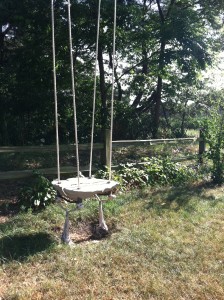There you are, poised on the brink of accomplishing something, and it begins, that voice that tells you you’re no good, you’ll never accomplish anything, and you should just quit now.
Your inner critic (aka The Gremlin) is alive and well.
The inner critic specializes in sabotaging creative endeavors, but can show up anytime you’re in the midst of making an important change in your life.
In spiritual practice, the inner critic falls under the heading of negative mind. The negative mind, one of the Ten Bodies in Kundalini Yoga, seeks to protect us from problematic situations by pointing out hazards or pitfalls.
But if the negative mind is over-developed it can become an immobilizing influence. Thus it’s important the negative mind be balanced by the positive mind, which sees all the potential good in any endeavor. And it’s equally important that we be governed by the neutral mind, which is a manifestation of our higher self and rises above an ego perspective.
There are different ways to cope with the inner critic. Some might suggest doing away with the Gremlin altogether, though this is much easier said than done. Trying to squelch the inner critic isn’t necessarily the most effective approach, as it sets up a win/lose adversarial-type situation, an inner war of sorts.
I’ve found that an effective approach is to listen with the recognition that this is a misguided attempt at protection, and to silent express appreciation for the protective instinct – after all, this is an attempt at self-preservation – and then gently (but firmly) move forward with your endeavor.
Recommended reading: Taming Your Gremlin, by Rick Carson










